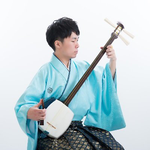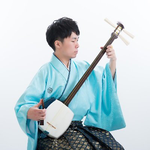
SASAKI Kyoshiro
- Faculty of Informatics, Kansai University, Osaka, Japan
- Social sciences
- recommender
Recommendations: 0
Reviews: 2
Reviews: 2
Sight vs. sound judgments of music performance depend on relative performer quality: Cross-cultural evidence from classical piano and Tsugaru shamisen competitions [Stage 2 Registered Report]
Music is appreciated cross-modally, but is culture- and context-dependent
Recommended by Yuki Yamada based on reviews by Kyoshiro Sasaki and 1 anonymous reviewerThe study methodology was an improved version of previous endeavors, wherein actual musical material sourced from concours performances was displayed through audio-only, video-only or both modalities. A sample of Japanese participants were then asked to evaluate the concours performances on both the piano and the Tsugaru shamisen. The results, obtained through pre-registered protocols, revealed that for both concours performances, the participants displayed a cross-modal impact of visual information on their aural evaluation of music. This effect was also found to be contingent on cultural and contextual factors. These outcomes furnish valuable evidence towards the generalizability of the interplay between sight and sound in the assessment of music.

Sight vs. sound in the judgment of music performance: Cross-cultural evidence from classical piano and Tsugaru shamisen competitions
Understanding the role of visual and auditory information in evaluating musical performance
Recommended by Yuki Yamada based on reviews by David Hughes and Kyoshiro SasakiIn this Stage 1 Registered Report, Chiba and colleagues (2021) aim to investigate how people use information from visual and auditory modalities when evaluating musical performances. Previous studies, mainly using Western music, have reported a visual dominance, but this has not yet been clearly and consistently reported. Thus, the authors propose to evaluate both the reproducibility and generalizability of the previous findings by conducting a replication study using the methodology of the previous studies and by introducing a new experimental condition in which the Tsugaru-shamisen, a unique Japanese musical instrument, is also performed. This study could represent an important turning point in the research context of performance evaluation and would be of considerable value.
This manuscript was peer-reviewed by two experts in scientific methodology and Japanese traditional music, respectively, and during the two-round peer-review process they made a number of important points, but eventually awarded the manuscript a highly positive response. I am therefore pleased to recommend that this Stage 1 Registered Report meets our Stage 1 criteria and is worthy of in-principle acceptance. I look forward to seeing the results and discussion reported in Stage 2, with the expectation that the experiment conducted by the authors will be in strict accordance with this protocol.
*The following is a very minor comment, which I hope the authors will find helpful in the future. Of course, this is not related to hypothesis construction and does not require revision: The "Blind Audition" study cited in the introduction is very impactful, but has recently been called into question, so I am at least a little cautious when citing this study. This article may be useful. https://www.wsj.com/articles/blind-spots-in-the-blind-audition-study-11571599303
URL to the preregistered Stage 1 protocol: https://osf.io/ry2b6
Level of bias control achieved: Level 6. No part of the data or evidence that will be used to answer the research question yet exists and no part will be generated until after IPA.
List of eligible PCI RR-friendly journals:
References
- Chiba G, Ozaki Y, Fujii S, Savage PE (2021) Sight vs. sound in the judgment of music performance: Cross-cultural evidence from classical piano and Tsugaru shamisen competitions [Stage 1 Registered Report]. Psyarxiv, xky4j, stage 1 preregistration, in-principle acceptance of version 5 by Peer Community in Registered Reports. https://doi.org/10.31234/osf.io/xky4jhttps://doi.org/10.17605/OSF.IO/RY2B6
